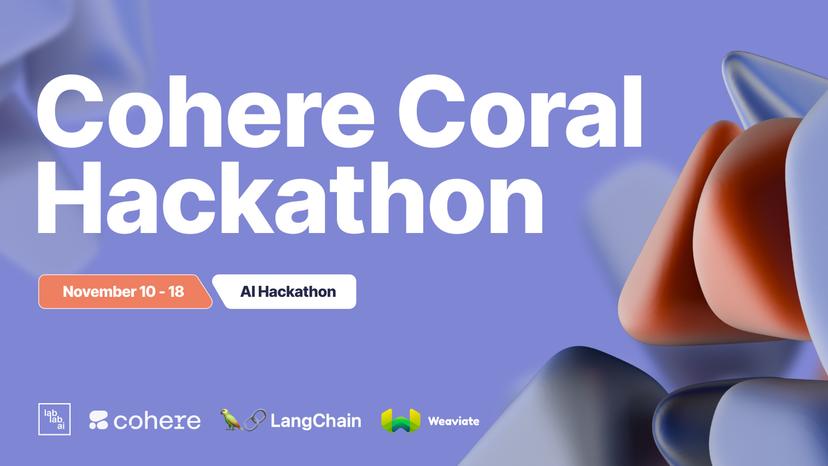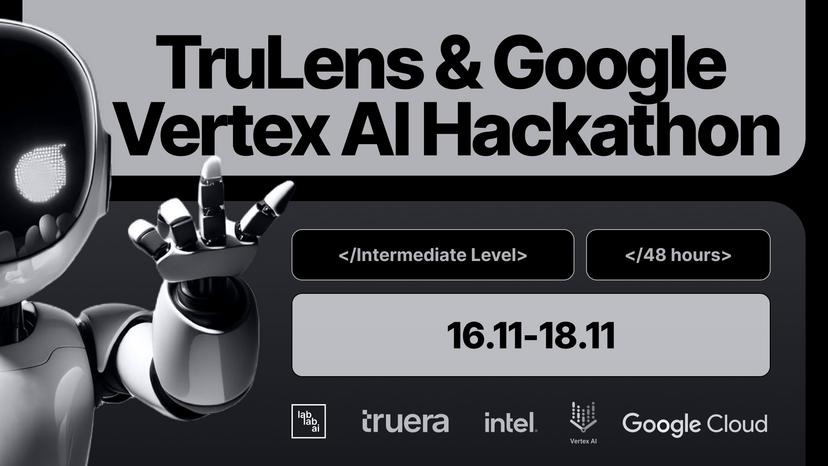
WAQAS ALI@WAQAS
is under improvement
44
Events attended
13
Submissions made
Pakistan
2+ years of experience
About me
I Waqas Ali As an Electronic Engineer Ready to collaborate and elevate in the tech world! , I'm eager to join teams, share my expertise in Python programming, and gain new insights from the brilliant minds on this platform. Let's connect, innovate, and grow together!
is under improvement
🤝 Top Collaborators
🤓 Latest Submissions

MetaGuardian AI Governance Compliance Orchestrator
Meta-Guardian: AI Governance & Compliance Orchestrator The Problem: Enterprises deploying hundreds of AI agents face regulatory scrutiny (EU AI Act, NIST, GDPR, SOX, HIPAA), bias risks, and coordination failures. Manual governance cannot scale to monitor thousands of real-time AI decisions. The Solution: Meta-Guardian addresses the meta-challenge of governing AI systems themselves. Built on IBM Watsonx Orchestrate, it acts as an autonomous "Chief Compliance Officer" for your AI workforce. Key Features: Real-Time Monitoring: Intercepts every AI decision, routing them to specialized governance agents (FinancialGuard, HRGuard, BiasGuard) for instant policy validation. Automated Compliance: Validates decisions against regulatory policies, creating immutable audit trails for SOX, GDPR, and HIPAA compliance. Bias Detection: Analyzes patterns to flag potential demographic bias in hiring, lending, and operations before harm occurs. Self-Healing Orchestration: Automatically blocks rogue agents after 3 violations, preventing cascading compliance failures. Human-in-the-Loop: Escalates high-risk decisions to compliance officers via real-time dashboard for human oversight at critical points. Natural Language Governance: Query compliance status using plain English ("Show me high-risk loans this week") for instant reporting. Technical Architecture: Hub-and-spoke model where business AI agents send decisions to Meta-Guardian, which coordinates governance agents, logs to persistent storage, and surfaces violations through an interactive Streamlit dashboard. IBM Watsonx integration provides enterprise authentication and scalability. Impact: Enables enterprises to deploy AI at scale while maintaining regulatory compliance, reducing audit costs, and preventing bias-related reputational damage. Transforms AI governance from manual bottleneck to automated capability.
23 Nov 2025

Civic Bridge A Multimodal AI Powered Inclusion Hub
Civic Bridge addresses the widening digital divide in smart cities, where 40% of marginalized residents—non-native speakers, the elderly, and low-literacy populations—are excluded from digital civic services. Our platform enables anyone to report issues via voice, images, or text in their native language, automatically routing requests to the correct city department using Gemini’s multimodal AI and Qdrant’s semantic search engine. Built on Next.js and deployed on Vercel, the system processes Arabic, Hindi, Urdu, and English inputs through a traceable Opus workflow that extracts structured data, calculates cross-model confidence scores, and triggers human review for low-confidence cases. Every action generates an immutable audit trail, ensuring transparent governance. Key innovations include offline-first PWA support for community centers, real-time translation at a 5th-grade reading level, and automated export to Google Sheets for city officials. By reducing per-request processing costs from $12 to $0.15 and increasing access for 1M+ underserved residents, Civic Bridge transforms civic engagement from a privilege to a universal right. Future phases include WhatsApp integration, blockchain audit logs, and multi-city deployment across the MENA region.
19 Nov 2025
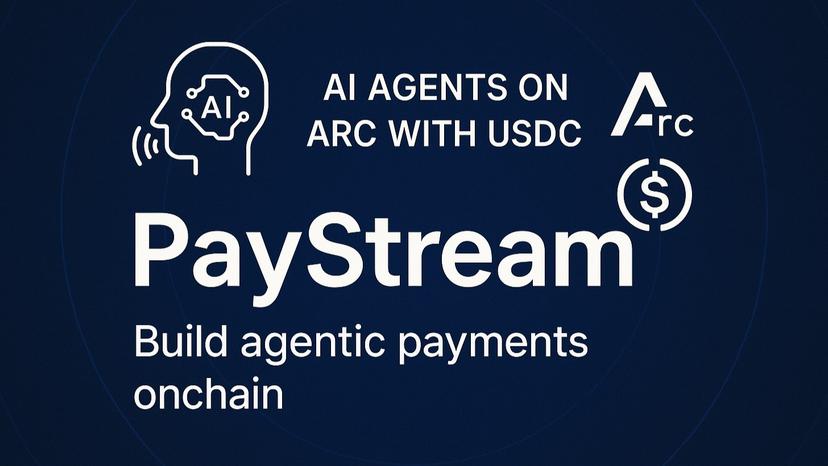
PayStream Voice AI Agent for USDC Payments on Arc
PayStream is a voice‑activated AI agent that turns natural language into safe, programmable USDC payment agreements on Arc testnet. Users speak a request (“pay Alice $10 weekly”), and the agent handles the full lifecycle: speech‑to‑text, intent parsing, agreement preparation, on‑chain escrow, oracle approval, and execution. The frontend runs on Next.js, backed by serverless API routes on Vercel. Agreements are formed as EIP‑712 payloads and authorized by the agent, then settled through a Solidity conditional‑escrow contract that holds USDC until predefined conditions are met. Oracles provide signature‑based policy checks (limits, recipients, timing), ensuring payouts follow guardrails. Optional WalletConnect lets users review or co‑sign from their own wallet, while Circle Developer Sandbox can be used for compliant wallet flows. The result is a transparent, auditable, and trust‑minimized payment experience that feels conversational yet executes with on‑chain guarantees. PayStream is ideal for recurring payouts, creator subscriptions, service retainers, and automated reimbursements—unlocking hands‑free payment operations for teams, apps, and agents.
8 Nov 2025
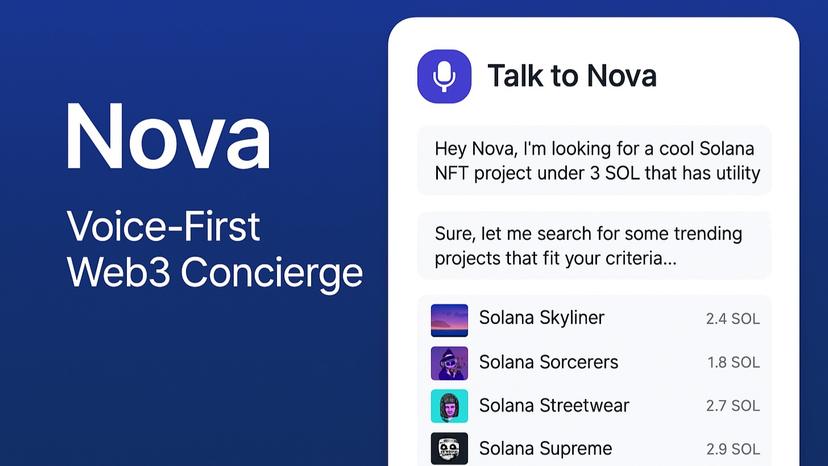
Nova voice-first Web3 concierge
Nova is a voice-first, multi-agent AI platform that acts as a personal Web3 concierge. Through a simple Streamlit web app, users can speak naturally to explore, evaluate, and acquire digital assets on Solana and other chains. Powered by Coral Protocol’s Model Context Protocol (MCP), Nova coordinates specialized agents: a Voice Agent for real-time speech interaction (ElevenLabs), a Research Agent to find trending NFT projects, an NFT Analyst Agent to evaluate rarity and pricing, and a Transaction Agent to securely mint via Crossmint. By combining conversational AI with blockchain APIs, Nova removes the complexity of wallets, smart contracts, and data analysis, making NFT ownership accessible to everyone.
21 Sep 2025
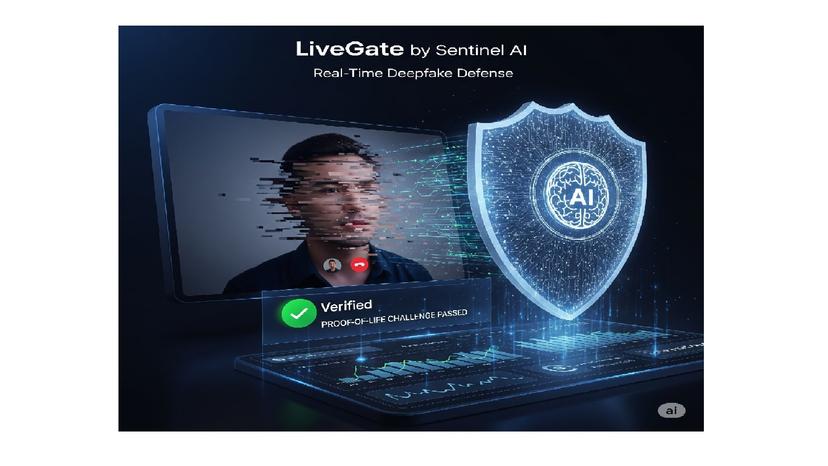
LiveGate AI-Powered Real-Time Deepfake Defense
LiveGate addresses the critical cybersecurity threat of deepfake-enabled fraud that cost enterprises over $200 million in Q1 2025 alone. Unlike traditional solutions that analyze media after the fact, LiveGate operates during the live conversation window—the only moment that truly matters for prevention. Our system leverages GPT-5's advanced multimodal reasoning to join video calls as a secure participant, analyzing audio, visual, and semantic signals in real-time. The core innovation lies in our dynamic proof-of-life challenge system that generates context-specific verification questions based on private organizational data—calendar events, project details, and internal terminology that deepfakes cannot anticipate. When integrated with enterprise systems (ERP, HRIS, calendars), LiveGate cross-references requests against company policies, detects social engineering patterns, and automatically blocks suspicious transactions. The system provides immediate ROI by preventing fraud losses, ensuring compliance, and creating auditable trails for security teams. Key differentiators include real-time prevention (not detection), unspoofable private context challenges, enterprise system integrations, and adaptive learning from incidents. LiveGate represents a paradigm shift from forensic analysis to active prevention, delivering measurable value for finance, healthcare, and government organizations facing sophisticated AI-powered threats. Built with cutting-edge technology including GPT-5 reasoning, WebRTC streaming, vector databases, and real-time API integrations, LiveGate demonstrates how AI can be deployed defensively to protect against AI-powered attacks while maintaining privacy and compliance standards.
24 Aug 2025
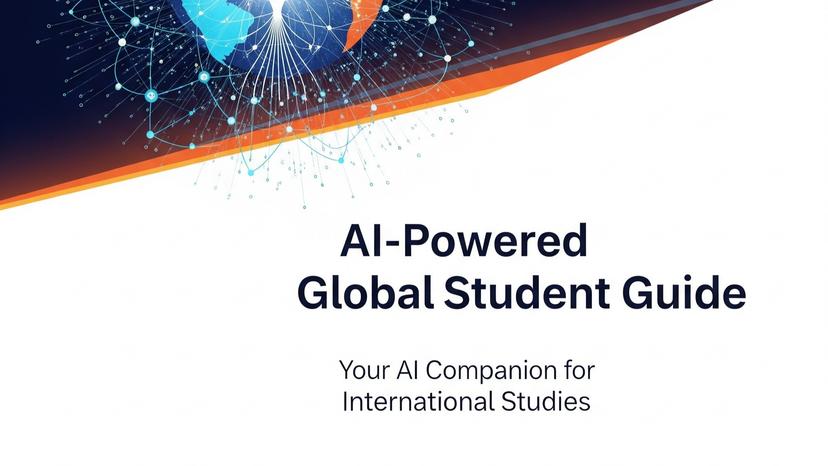
AI-Powered Global Student Guide Study Mate AI
StudyMate AI is a smart, interactive platform designed to assist international students throughout their study abroad journey. Built using Trae AI IDE, the app leverages large language models via Novita.ai to provide real-time visa assistance, personalized application roadmaps, and tailored academic guidance based on each user’s profile. Students can input their academic interests, budget, preferred countries, and English proficiency to generate a customized timeline of tasks and documentation. With a secure authentication system, progress-tracking dashboard, and AI-powered chatbot, StudyMate AI simplifies the complexities of global education. Its scalable, modular design allows for future backend integration and mobile expansion, making it a future-ready EdTech solution.
15 Jun 2025

Aleph-Tav Healthcare Safety Agentic
Our team built an agent-driven Healthcare Safety Platform designed to arrest James Regen’s “Swiss-cheese” iatrogenic cascades by unifying disparate hospital data into a Databricks Lakehouse and surfacing real-time risk insights. We began by defining the problem scope—10 percent of inpatients suffer preventable harm when latent system flaws align with active errors—then organized our work around four specialized personas. Agentic Maya Thompson led a strategic analysis of EHR admission/discharge records, incident and near-miss logs, and staffing schedules to prioritize the failure modes that most undermine patient safety and throughput. Carlos Reyes ingested data streams from EHRs, medical devices, wearables, and clinical protocols via Auto Loader into Bronze, Silver, and Gold Delta tables, codified transformation logic in Delta Live Tables, and enforced data governance with Unity Catalog to ensure compliance and lineage traceability. Dr. Priya Singh developed and rigorously validated predictive models—combining lab values, time-series vitals, protocol deviation flags, and staffing ratios—to flag patients at highest risk of cascading harm, audited model fairness across units, and registered top-performing versions in MLflow. Finally, Olivia Chen translated complex risk scores and incident trends into an intuitive dashboard using Databricks SQL and an embedded React interface, designing sliding-scale gauges, alert workflows tied to staff schedules, and drill-down incident timelines that guide timely, targeted interventions. Over multiple iterations, the team tagged each other on data-readiness checks, schema clarifications, feature requests, and prototype refinements in our integrated chat system, converging on a production-ready solution that continuously monitors care pathways, predicts misalignment in advance, and closes the “holes” in our clinical defenses—turning fragmented hospital data into life-saving insights.
1 May 2025
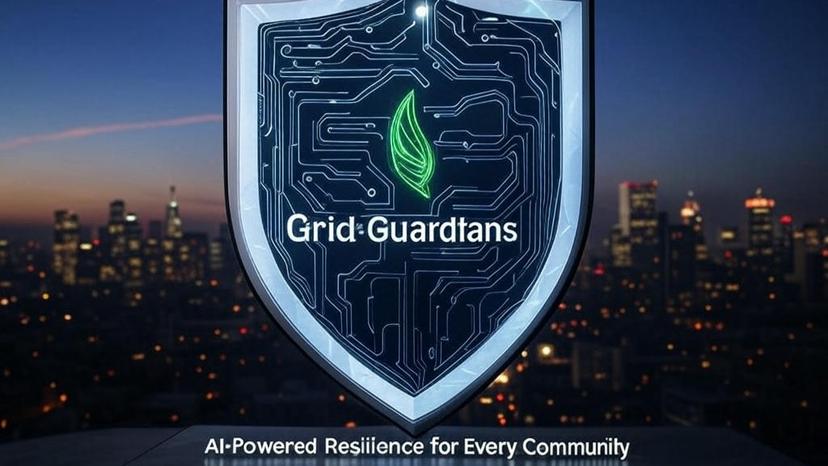
AI-Driven Resilience for Public Sector Networks
Problem: Public sector networks in underserved regions face crippling energy costs (40-60% of budgets), frequent outages (15-20% downtime), and reactive maintenance models that drain resources. Solution: GridGuardians leverages AI to: • Predict equipment failures 72hrs in advance using Prophet time-series forecasting • Reduce energy waste by 22% via anomaly detection (Isolation Forest) • Prioritize repairs using cost-benefit simulations (Random Forest regression) Target Audience: Governments, NGOs, and institutions managing connectivity for: • Rural schools (Giga partnership focus) • Healthcare facilities (HealthSites integration) • Low-income urban communities Unique Features: • Offline-first design for low-bandwidth areas • Open-source core with federated learning • Carbon credit reporting for sustainability grants
2 Mar 2025
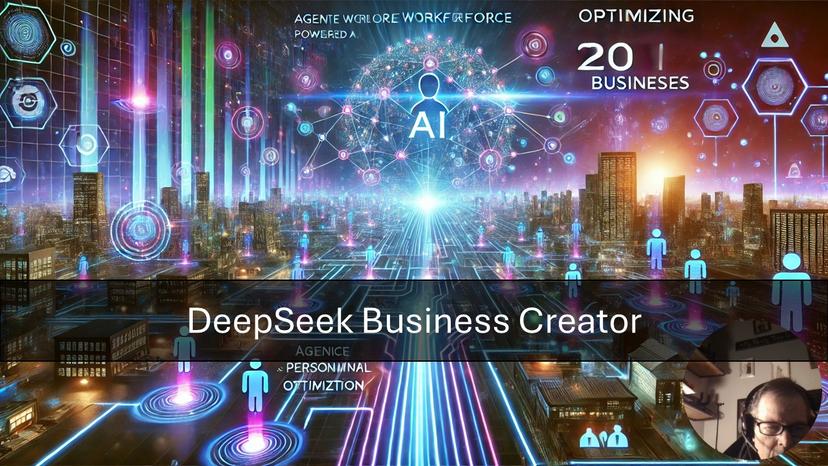
DeepSeek Business Creator
The DeepSeek Business Creator demonstrates how to leverage DeepSeek's latent reasoning space to emulate three-agent interaction for multi-business creation on the web. This system integrates a simple Markov chain optimization process with browser automation, allowing businesses to emerge dynamically in an optimized sequence. The approach enables AI-driven enterprises to launch and scale efficiently, simulating real-world economic expansion with minimal human intervention. From an initial dataset of 200 business ideas, 20 were selected based on predefined success factors. Each of these businesses was assigned three AI agents, each specializing in different aspects of business creation: market research, operational strategy, and adaptive growth. The sequence of business creation was optimized using a Markov chain model, ensuring that dependencies between business types and market readiness were accounted for. This optimization increased the likelihood of success by structuring the order in which AI-driven businesses launched and scaled. AI agents interacted within DeepSeek’s latent space to generate business plans dynamically. These plans emerged from the interplay of three AI agents, refining concepts based on strategic reasoning. Once validated, browser automation was used to execute the launch of these businesses, coordinating their deployment across different online markets. As AI-driven businesses launched, they began to emerge in various markets worldwide. The system's ability to simulate economic scaling in a decentralized manner demonstrated the potential of AI agents to drive real-world business success autonomously. As businesses evolved, AI agents adapted and absorbed the most successful strategies. The agent absorption rule ensured that underperforming agents were phased out, while the most effective decision-making patterns were integrated into the next generation of business iterations.
16 Feb 2025
.png&w=640&q=75)

